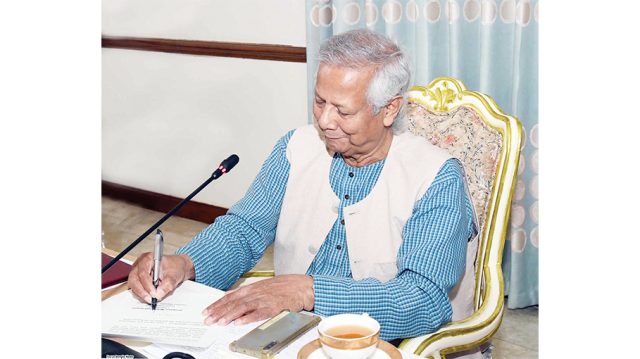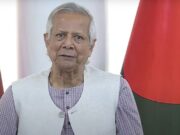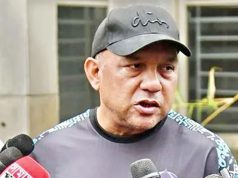
Bangladesh on Thursday signed the instrument of accession to the International Convention for the Protection of All Persons from Enforced Disappearance, demonstrating its commitment to investigate each and every case of enforced disappearances.
With this, Bangladesh is now party to all nine core human rights treaties, manifesting people’s aspirations to uphold freedom and justice for everyone.
The International Convention for the Protection of All Persons from Enforced Disappearance was adopted in New York on 20 December 2006.
Chief Adviser of the interim government Prof Muhammad Yunus declared that the Bangladesh government having considered the above-mentioned Convention accedes to the same and undertakes faithfully to perform and carry out the stipulations therein contained.
“I have signed this instrument of accession at Dhaka, Bangladesh on 29 August 2024,” reads a document signed by Prof Yunus on Thursday.
The chief adviser signed the instrument of accession at the weekly meeting of the council of advisers amid clapping by advisers. “It is a historic occasion,” he said.
The instrument was signed a day before the International Day for the Victims of Enforced Disappearances on August 30.
The interim government earlier this week formed a commission to investigate every case of enforced disappearances by security forces during Sheikh Hasina’s 15-year authoritarian rule.
“It is a big milestone for us, especially for the human rights workers. Around 700 people remain missing due to enforced disappearances. Many of us have faced this and a number of organizations are working in this area including Mayer Dak,” Adviser on Environment, Forest, and Climate Change Syeda Rizwana Hasan told reporters after the meeting.
She said a strong message is conveyed through this signing that there will be no enforced disappearances in the country and another message is that the victims will get a protection.
Bangladesh will take required law reforms in line with the modalities of the convention. The United Nations was repeatedly telling Bangladesh why the convention was signed.
Rizwana said the law enforcement agencies were not given any license to stage enforced disappearances. “They have no legal authority to do that. These practices must stop.”
The issue was earlier discussed in the meeting of the advisory council of the interim government.
Enforced disappearance has frequently been used as a strategy to spread terror within the society.
The United Nations Working Group on Enforced or Involuntary Disappearances has published records of more than 59,000 cases of “enforced disappearances” across 110 countries since 1980. The list includes countries who claim themselves to be the torchbearers of human rights.
















































